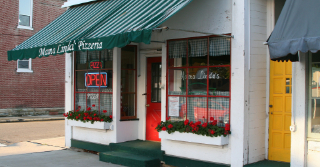Any concerns identified by a risk manager inspection should be addressed by the business promptly, as they could cause higher premium costs, or even risk coverage being revoked if not corrected.
By proactively addressing any concerns that may arise during an inspection, policyholders can feel confident in their operations.
Here are some common questions that may be addressed during an inspection:
Property
- Is the building and property in good repair?
- Is the roof in good repair? Are there any visible water watermarks on the ceiling that could indicate water intrusion?
- Are there class ABC fire extinguishers in the kitchen, dining room, and other areas?
Equipment
- Are cooking appliances in good condition?
- Are they maintained by a qualified contractor?
- Do you have records of maintenance?
- Is there a Class K fire extinguisher in the kitchen?
- Class K fire extinguishers are specific to cooking fires and require regular inspections
- Is the hood that covers cooking equipment cleaned at appropriate intervals?
- Depending on the type of cooking being done, this could be semiannually, quarterly, or monthly.
- Do you have logs of cleanings done by a qualified 3rd party?
- Are grease traps cleaned regularly?
- Do you have logs of the cleanings?
- Are refrigeration systems inspected for leaks and maintained by qualified contractors?
- Do you have logs of completed maintenance?
Liability
- Are floor surfaces clean and dry?
- Are exits clearly marked with lit exit signs and clear of obstacles?
- In winter are walkways, sidewalks, and parking lots kept clear of snow and ice?
- Are walkways, sidewalks, and parking lots well-lit and marked, especially near entrances/exits and steps?
Liquor
- Are employees trained in practices to ensure patrons are not over served?
- Is there a program or policy in place to secure a taxi or ride-share for patrons who are intoxicated?
Crime
- Are point-of-sale stations in plain view of other employees and customers?
- Is there surveillance of the point-of-sale stations?
- Is there a burglar alarm?
- Are cash, checks, and receipts kept in a time-delayed safe?
- Are deposits staggered?
- It is recommended to stagger deposits to avoid establishing a pattern that can be exploited
By reviewing these questions well in advance of your next inspection and making any necessary adjustments you can give your operations appropriate time to correct any concerns before the rush is on.



